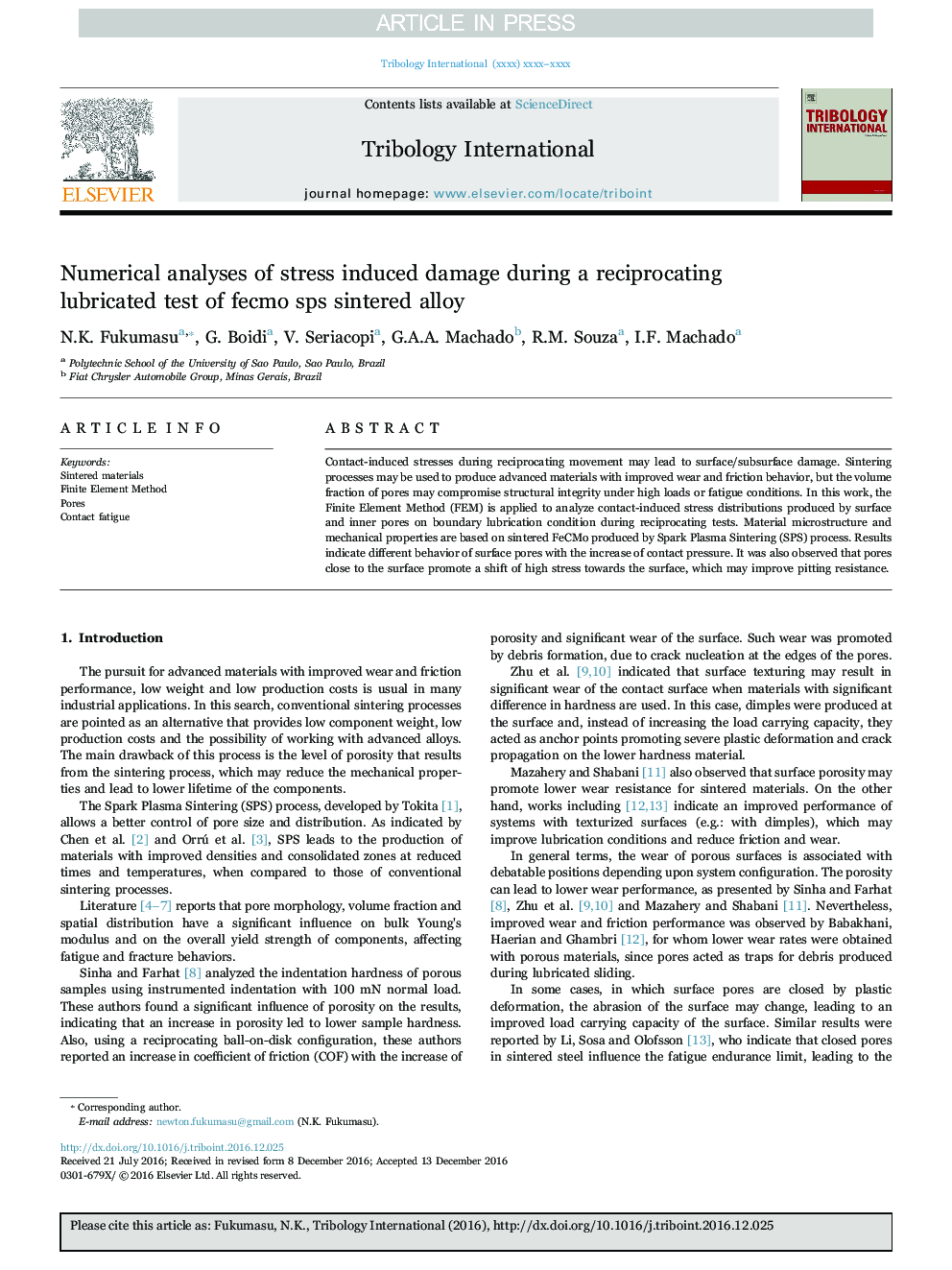| Article ID | Journal | Published Year | Pages | File Type |
|---|---|---|---|---|
| 4985821 | Tribology International | 2017 | 5 Pages |
Abstract
Contact-induced stresses during reciprocating movement may lead to surface/subsurface damage. Sintering processes may be used to produce advanced materials with improved wear and friction behavior, but the volume fraction of pores may compromise structural integrity under high loads or fatigue conditions. In this work, the Finite Element Method (FEM) is applied to analyze contact-induced stress distributions produced by surface and inner pores on boundary lubrication condition during reciprocating tests. Material microstructure and mechanical properties are based on sintered FeCMo produced by Spark Plasma Sintering (SPS) process. Results indicate different behavior of surface pores with the increase of contact pressure. It was also observed that pores close to the surface promote a shift of high stress towards the surface, which may improve pitting resistance.
Related Topics
Physical Sciences and Engineering
Chemical Engineering
Colloid and Surface Chemistry
Authors
N.K. Fukumasu, G. Boidi, V. Seriacopi, G.A.A. Machado, R.M. Souza, I.F. Machado,
